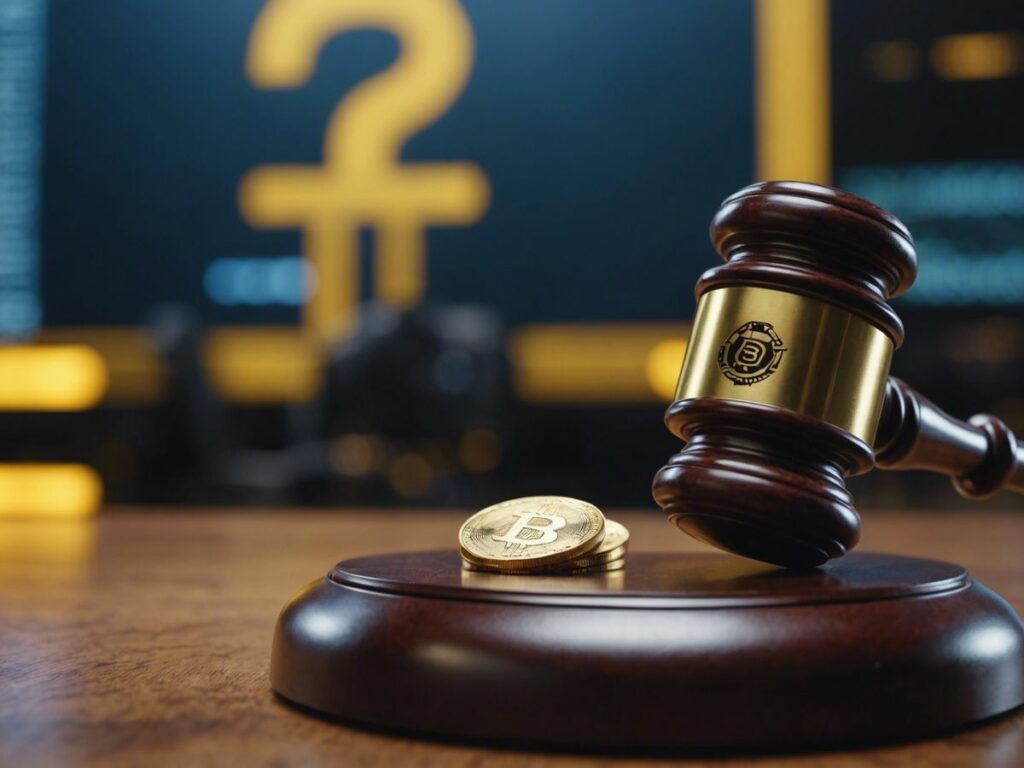In 2023, the U.S. Securities and Exchange Commission (SEC) initiated lawsuits against the world’s three largest crypto exchanges – Binance, Coinbase, and Kraken – marking the beginning of a stringent regulatory era for the crypto industry.
Key Takeaways
- The SEC has accused Binance, Coinbase, and Kraken of operating unregistered exchanges and other regulatory violations.
- The lawsuits have significant implications for the classification of cryptocurrencies as securities.
- The crypto market has shown resilience despite the legal challenges.
SEC vs. Binance: Accusations and Developments
On June 5, 2023, the SEC filed a lawsuit against Binance, alleging multiple violations, including running an unregistered exchange, selling Binance-owned cryptos BNB and BUSD, and using customer funds for its own interests. The SEC is also investigating whether Binance had a “backdoor” to control assets on its U.S. platform.
Binance has responded by filing a motion to dismiss the lawsuit. The case is expected to extend into 2024, with Binance agreeing to pay a $4.3 billion fine to settle charges from other U.S. regulatory bodies. This settlement led to the resignation of CEO Changpeng Zhao, with Richard Teng taking over.
SEC vs. Kraken: Commingling Complaints
On November 20, 2023, the SEC filed a complaint against Kraken, accusing it of operating as an unregistered exchange and commingling customer funds. Kraken has denied the charges and plans to defend itself in court. This is not Kraken’s first encounter with the SEC; earlier in 2023, it paid $30 million in fines to settle charges related to its staking program.
SEC vs. Coinbase: Compliance Issues
A day after the Binance lawsuit, the SEC charged Coinbase with operating as an unregistered exchange and broker. The SEC also took issue with Coinbase’s staking-as-a-service program. Coinbase has responded by attempting to register parts of its business and asking the SEC to specify which cryptos it considers securities. The case is also expected to extend into 2024.
Market Reactions and Future Implications
Despite the lawsuits, the cryptocurrency market has shown resilience. Bitcoin and Ether quickly rebounded from initial sell-offs, although other cryptos like BNB, ADA, and SOL faced selling pressure after being named as securities by the SEC.
Cryptos Identified as Securities
The SEC has identified several cryptocurrencies as securities in its lawsuits against Binance and Coinbase. Here is a list of some of them:
- Binance vs. SEC lawsuit: Solana (SOL), Cardano (ADA), Polygon (MATIC), Filecoin (FIL), Cosmos (ATOM), Sandbox (SAND), Decentraland (MANA), Algorand (ALGO), Axie Infinity (AXS), Coti (COTI)
- Coinbase vs. SEC lawsuit: Solana (SOL), Cardano (ADA), Polygon (MATIC), Filecoin (FIL), Sandbox (SAND), Axie Infinity (AXS), Chilliz (CHZ), Flow (FLOW), Internet Computer (ICP), Near (NEAR), Voyager (VGX), Dash (DASH), Nexo (NEXO)
The Road Ahead for the Crypto Industry
The crypto industry is bracing for more stringent regulations. Experts suggest that U.S. centralized exchanges might limit their offerings to Bitcoin and Ether, while international exchanges could list tokens not available in the U.S. There is also a push within the industry for cryptocurrencies to be regulated by the Commodity Futures Trading Commission (CFTC) rather than the SEC.
Understanding the SEC’s Role
The SEC aims to regulate cryptocurrencies similarly to how it regulates the stock market, ensuring that companies provide truthful information and protect investors. Established in 1934, the SEC has a long history of overseeing financial markets and ensuring compliance with securities laws.
Conclusion: Inevitable Regulations
Cryptocurrency regulation appears inevitable, but there is hope that the U.S. will provide a fair regulatory environment. With clearer regulations, crypto exchanges are expected to become stronger and more secure, benefiting the industry and its participants.
Sources
- SEC vs Binance, Coinbase, Kraken Lawsuits Usher Tough New Era, Techopedia.
- Binance Lawsuit: US SEC Files Coinbase Insider Case as Supplemental Authority in Binance Suit, CoinGape.
- Binance, Coinbase head to court; the SEC labels 67 crypto-securities, Cointelegraph.
- Full List of Cryptos Named Securities in SEC Lawsuits, BeInCrypto.

